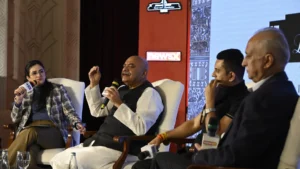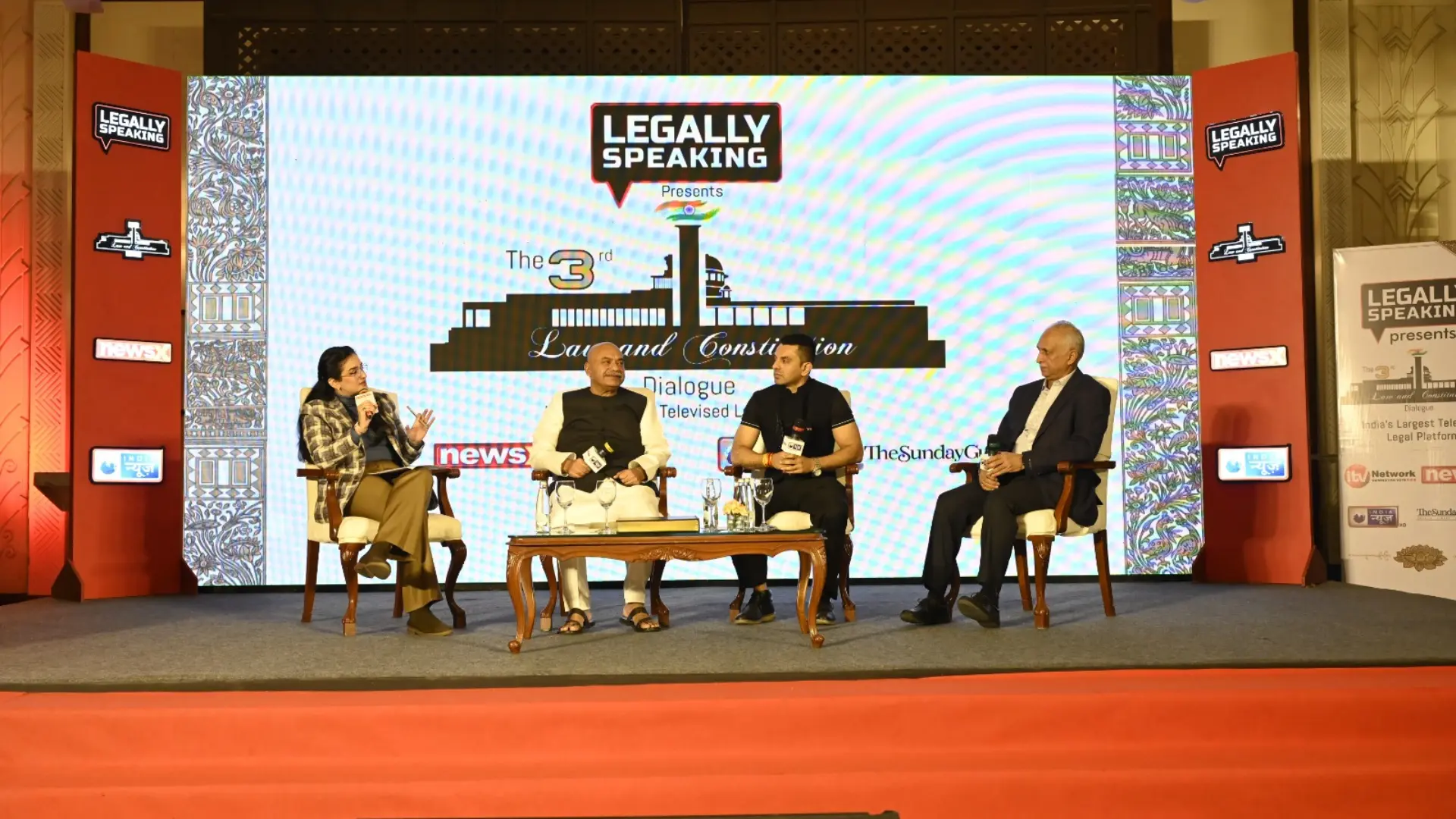A vibrant discussion unfolded surrounding critical issues in India’s judicial system, particularly focusing on the concept of “Bulldozer Justice” and the vast backlog of pending cases. Key speakers included Tehsin Poonawala ( A Political Analyst), Sudhanshu Mittal ( BJP leader), and S N Srivastav( Former Delhi Police Commissioner), each offering unique perspectives on law enforcement, judicial delays, and the need for reform in the justice delivery system at the Legally Speaking: 3rd Law and Constitutional Dialogue event, where the former judge was interviewed by NewsX Executive Editor Devika Chopra.
Bulldozer Justice: A Public Appeal but Risk of Overreach
The concept of Bulldozer Justice has gained popularity, particularly in cases of illegal encroachment and crimes committed by notorious individuals. Sudhanshu Mittal voiced concerns about the government’s role, questioning whether the approach is always appropriate. He pointed out that while people in a civilized society must fear the law due to serious consequences, the risk of overreach remains. He emphasized that public property encroachment, illegal buildings, and other such violations should be addressed according to law and should not fall victim to reactionary justice.
Mittal also noted that people’s faith in the judicial system has eroded due to the long delays in justice. He suggested that while Bulldozer Justice appeals to the public for its immediacy, it should not bypass proper legal processes. He also argued that status quo tendencies among the public are a concern, especially when laws regarding demolition and encroachment vary across states.
Due Process of Law: Tehsin Poonawala’s Strong Defense

Tehsin Poonawala strongly defended the rule of law, asserting that no one, regardless of their crime, should be punished outside the court system. He agreed with Mittal on the need for law to be followed, stressing that public property demolition must follow due process. Poonawala referred to a well-crafted 95-page judgment that clarified the process of demolishing public property. The judgment ensures the proper steps are followed, including a 15-day notice before eviction.
However, Sudanshu Mittal countered by taking issue with the growing tendency of judicial overreach, particularly regarding the Bulldozer Justice debate. He raised concerns over the increasing role of the Supreme Court in setting guidelines that traditionally fall under the legislative and executive domains, urging a return to the separation of powers.
Challenges in Speedy Justice Delivery: Srivastav’s Concerns
S N Srivastav, while acknowledging the growing frustrations of victims and the long waiting periods, emphasized the importance of speeding up judicial proceedings without compromising legal standards. He referenced the case of Vikas Dubey, where demolition was seen as a response to criminality but warned against adopting a blanket approach for all cases. Srivastav proposed that laws around encroachment should be dealt with methodically, especially in the context of government lands, and not in a reactive or punitive manner.
He also highlighted the need for legislative reform, particularly the timely filing of chargesheets, which can significantly affect the bail process. Srivastav expressed support for increasing the number of courts and reducing adjournments, thereby expediting case resolution.
Proposed Reforms for Judicial System
The speakers also touched on various reforms to address the judicial backlog. Tehsin Poonawala advocated for raising the retirement age of judges and setting up courts in regions with high numbers of pending civil cases. He also suggested creating multiple branches of the Supreme Court across the nation to address constitutional matters, leaving the apex court to focus on national issues. Additionally, Poonawala recommended leveraging AI and technology to resolve simple civil disputes more efficiently.
Mittal, while agreeing that reforms are needed, cautioned that the Supreme Court should not overstep its boundaries and interfere in matters traditionally governed by other laws and courts.
The Legally Speaking event shed light on the complexities of implementing Bulldozer Justice while adhering to the due process of law. The discussion highlighted the need for systemic judicial reforms to address the backlog of pending cases and the delay in justice delivery. While immediate justice may seem appealing, it is crucial to balance expediency with fairness and the rule of law to ensure that the judicial system serves all citizens equitably.
As the debate continues, the insights shared by the panelists offer valuable perspectives on how India’s judicial system can evolve to meet the demands of justice, efficiency, and fairness.



















